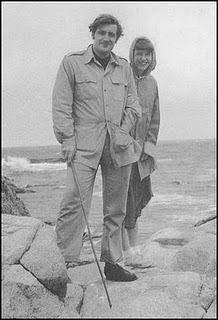
Last Letter

By Ted Hughes (to Sylvia Plath)
What
happened that night, your final night?
Double, treble exposure
over everything.
Late afternoon Friday, my last sight of you
alive,
Burning your letter to me in the ashtray with that strange
smile.
What did you say over the smoking shards of that letter?
So
carefully annihilated, so calmly,
That let me release you and
leave you to blow its ashes off your plan.
Off the ashtray
against which you would leave me to read the doctor’s phone
number.
My escape had become such a hunted thing,
Sleepless,
hopeless, all its dreams exhausted.
What happened that night,
inside your hours
Is as unknown as if it never happened.
What
accumulation of your whole life,
Like effort unconscious, like
birth
Pushing through the membrane of each slow second
Into the
next, happened
Only as if it could not happen
As if it was not
happening.
And I had started to write when the
telephone
Jerked me awake, in a jabbering alarm,
Remembering
everything. It recovered in my hand.
Then a voice like a selected
weapon
Or a measured injection,
Coolly delivered its four
words
Deep into my ear: “Your wife is dead.”
Ted Hughes (17 August 1930 – 28 October 1998) was an English poet and children's writer. Critics routinely rank him as one of the best poets of his generation. Hughes was British Poet Laureate from 1984 until his death. He was married to American poet Sylvia Plath from 1956 until her death by suicide in 1963 at the age of 30. His part in the relationship became controversial to some feminists and (particularly) American admirers of Plath. His last poetic work, Birthday Letters (1998), explored their complex relationship. These poems make reference to Plath's suicide, but none of them addresses directly the circumstances of her death. A poem discovered in October 2010, Last letter, describes what happened during the three days leading up to Plath's suicide.
Home